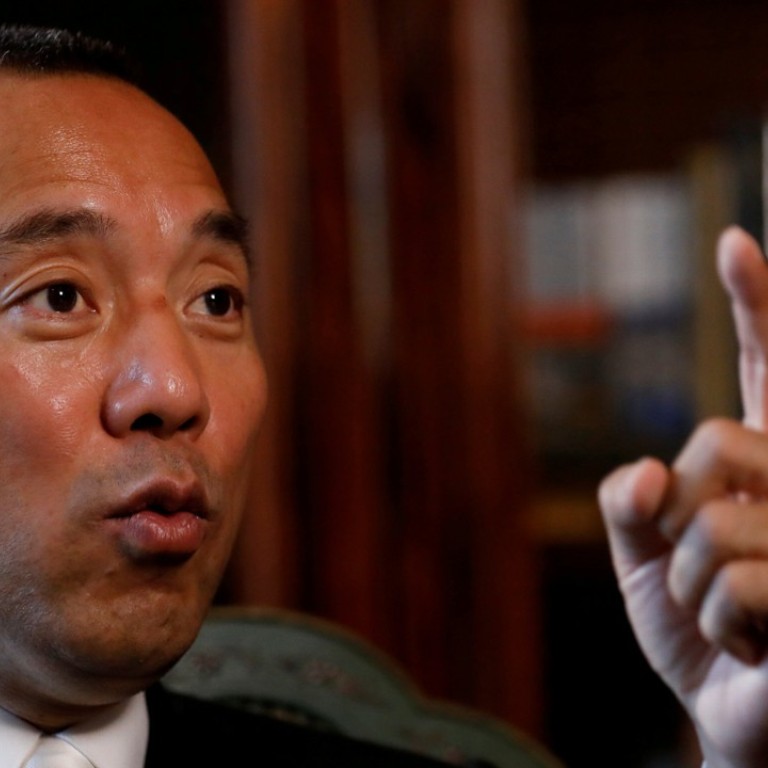
Australian man claims properties Chinese fugitive Guo Wengui said were owned by ‘corrupt’ official
Sun Lijun, who shares a name with Chinese public security official accused of graft, uses passport, driving licence to ‘prove’ homes are his
An Australian-Chinese man has appeared in a YouTube video claiming ownership of one and links to the second of two properties that fugitive Chinese tycoon Guo Wengui said earlier belonged to a Chinese official.
The man from New South Wales used his passport and driver’s licence to identify himself as Sun Lijun – a name he shares with the official from China’s Ministry of Public Security, whom Guo accuses of being corrupt. He then presented legal documents to show that he owned one of the properties and had sold the other last year.
Last week, Guo, who is living in exile in the United States, appeared in his own video in which he presented documents that he claimed proved the two properties were owned by the Chinese official. He pointed to the signature on the papers as being that of the official.
The film produced by the Australian man appeared online on Monday under a YouTube account that was set up in July and is apparently dedicated to trying to disprove Guo’s claims.
The documents he presented appeared to indicate he shared a name with the public security official, and gave contact details and names of the lawyers involved in the house purchases and sale.
He said that his signature was “hard to imitate” but accused Guo of making it public.
The South China Morning Post was unable to verify the authenticity of the video, and Guo’s lawyers did not respond to requests for comment.
Sun said in the film that he was currently in China visiting relatives, but would return to Australia within a week.
Guo has made several corruption allegations against senior Chinese figures in recent months, including Wang Qishan, the party’s most senior anti-corruption official. Wang is considered an ally of President Xi Jinping and generally regarded as being the country’s second most powerful man.
Guo has yet to provide any substantial evidence to support any of his claims.
In April, Interpol issued a red notice requesting his arrest on bribery charges. China has also indicated it would request a second red notice be issued in connection with an alleged rape that took place outside China.
Last month, one of Guo’s former employees filed a civil lawsuit in New York state claiming she had been raped and seeking damages of US$140 million.
Guo has claimed political asylum in the United States, which does not have an extradition treaty with China.

